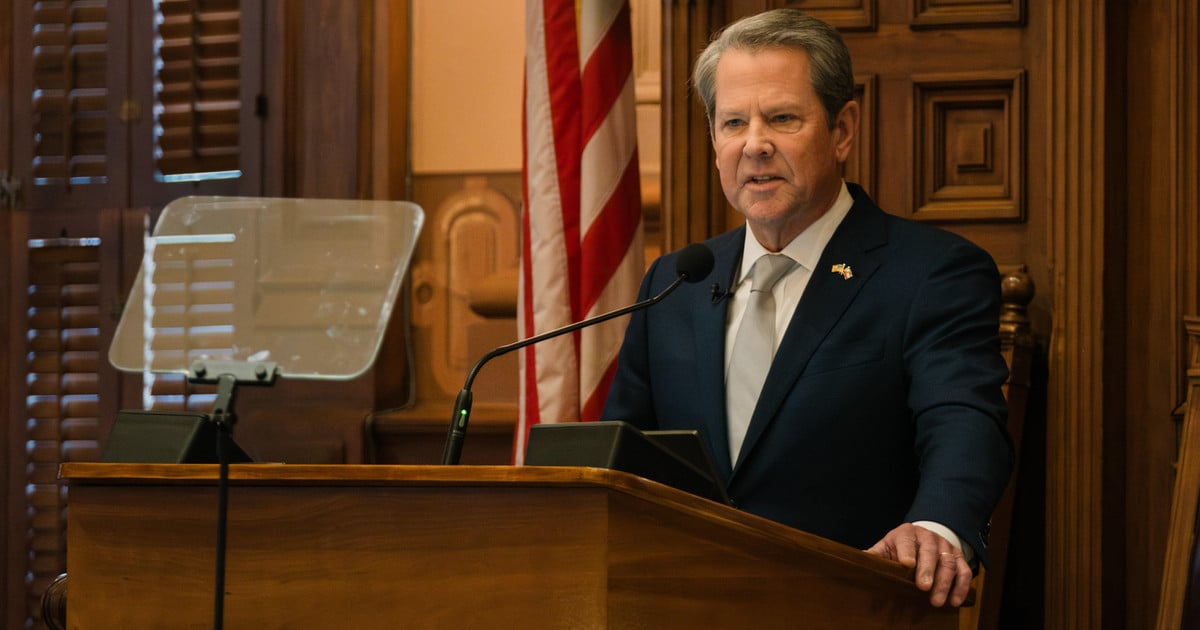
In a concerning trend for government accountability, ethics reform legislation faced significant hurdles in multiple statehouses across the U.S. in 2025. In Virginia, a legislative committee rejected a bill mandating lawmakers to disclose cryptocurrency holdings. New Mexico’s Democratic governor vetoed a transparency measure aimed at requiring lobbyists to disclose their positions on legislation. Meanwhile, North Dakota lawmakers continued to limit the power of the state ethics commission, a body established seven years ago by citizens mobilized through the group BadAss Grandmas for Democracy.
As the ethical standards of governance become increasingly malleable in Washington, D.C., a surge of ethics-related bills made their way into state legislatures this year, according to the bipartisan National Conference of State Legislatures’ ethics legislation database. While some states managed to pass stronger ethics oversight measures, a ProPublica analysis revealed that in many instances, lawmakers obstructed or dismantled efforts aimed at ensuring accountability to the public.
Both Democratic and Republican lawmakers attempted to advance bills that would impose stricter gift limits, enhance conflict-of-interest provisions, or expand financial disclosure requirements. Yet time and again, these proposals were sidelined.
Working alongside local news organizations that are part of ProPublica’s Local Reporting Network, we reviewed a variety of legislation aimed at undermining ethics regulations in 2025. Insights from experts reveal a growing threat to the standards of ethics and their enforcement across the nation.
Craig Holman, a seasoned government ethics expert with the nonprofit Public Citizen, noted the cultural shift instigated by former President Donald Trump, suggesting that ethics have lost their significance. He highlighted Trump’s private dinner with cryptocurrency investors and the administration’s tariff negotiations with Vietnam, which coincided with the approval of a Trump Organization golf resort. Holman pointed out that the current White House has abandoned any ethical policy, marking a stark departure from over 16 years of ethical governance under previous administrations.
The Campaign Legal Center, an advocacy group for ethics enforcement, has documented the evolving challenges faced by state ethics commissions nationwide. These commissions typically oversee lobbying, campaign finance, and conflicts of interest laws. In their 2024 Threat Assessment report, they warned that those seeking to weaken ethics commissions are increasingly innovative in their approach, urging all commissions to be vigilant.
Delaney Marsco, the center’s ethics director and lead author of the report, asserted, “Any attempts to chip away at ethics commission authority is actually just chipping away at the public’s right to know what’s actually going on in their government.”
In Louisiana, a new law significantly weakened ethics standards by complicating the process for the state Board of Ethics to initiate investigations. The threshold for launching an inquiry was raised from “reason to believe” to “probable cause,” and now requires a two-thirds majority of the board to agree before acting on a sworn complaint. This legislation, which garnered overwhelming bipartisan support, was seen as targeting the board’s previous actions against then-Attorney General Jeff Landry, who is now the governor. The ethics commission dropped charges against Landry as part of a settlement deal.
Rep. Beau Beaullieu, a Republican sponsor of the bill, claimed that it aimed to impose checks on what he described as overzealous enforcement actions. However, in many other instances, legislators actively hindered ethics reforms.
In South Carolina, a corruption probe that resulted in the convictions of several legislative leaders led to a wave of ethics reforms in the 2010s, but since then, progress has stagnated. Sen. Sean Bennett, a Republican and chair of the Ethics Committee, lamented the lack of traction for new initiatives, stating, “It’s been radio silent ever since.”
This year, some South Carolina legislators even proposed a bill exempting government appointees from filing statements of economic interest, a requirement for elected officials and certain high-profile public figures. Rep. Mike Burns, the bill’s conservative Republican sponsor, argued that it would protect unpaid appointees unaware of how to navigate the filing process. However, Rep. Roger Kirby, a Democrat, countered that transparency should be prioritized, questioning the rationale behind retreating from accountability.
In Oregon, a proposal by Senate Republicans aimed to dissolve the state’s ethics commission, allowing state agencies to self-regulate. Although the measure failed to advance, its sponsor, Daniel Bonham, expressed a desire for public discourse about the commission’s effectiveness.
Despite the numerous setbacks, some states have successfully enacted reforms. Maine, for instance, saw a bipartisan effort to impose a one-year waiting period for legislative staff transitioning to lobbying roles. Rhode Island’s Democratic supermajority collaborated with the governor to enact a prohibition against bid-rigging for state contracts. In Oklahoma, lawmakers even overturned a governor’s veto to criminalize self-dealing by government officials, emphasizing a commitment to accountability.
In Washington, state lawmakers reaffirmed a requirement for financial disclosures, mandating that any interest greater than 10% in a company or property be reported. Critics, however, pointed out that this standard pales in comparison to the stricter 1% requirement imposed on local officials, raising concerns about trust in the Legislature.
As efforts to enhance ethics accountability in statehouses falter, many citizens and advocacy groups remain vigilant, calling for transparency and ethical governance to ensure that elected officials remain accountable to the people they serve.


